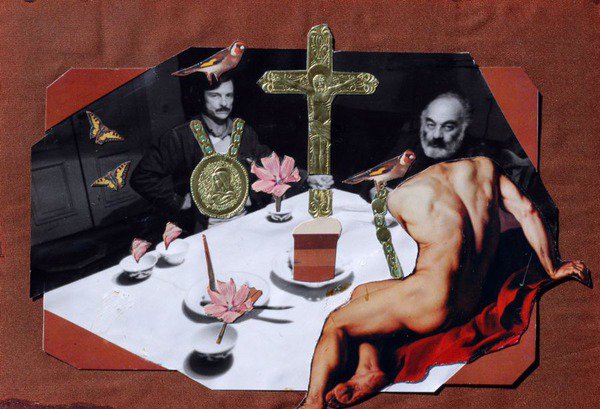Mirror and Pomegranate
dal 27/9/2012 al 16/11/2012
Segnalato da
27/9/2012
Mirror and Pomegranate
ArtMost Foundation, London
Photographs and polaroid prints by Andrey Tarkovskiy and Sergei Parajanov from the private archives of two of the 20th century's greatest film directors. The exhibition will also be an exploration of a lifelong friendship between the two geniuses of Soviet film.

Anya Stonelake/White Space Gallery in collaboration with ArtMost Foundation presents a unique exhibition from the private archives of two of the 20th century's greatest film directors: Andrey Tarkovsky (1932 - 1986) and Sergei Parajanov (1924 - 1990). The exhibition and the surrounding events celebrate the 80th anniversary of Tarkovsky's birth and the great friendship between the two men. Andrey Tarkovsky is widely considered to be one of the greatest filmmakers the world has ever known. He made just eight feature films before his life was cut tragically short by cancer, at the age of 54 in 1986. Each film is an artistic masterpiece and a major landmark in world cinema.
Starting on the 28th of September ArtMost is hosting a central event of the festival, an exhibition Mirror and Pomegranate, which will present archive photographs and polaroid prints by Tarkovskiy. The exhibition will also be an exploration of a lifelong friendship between Andrey Tarkovskiy and his colleague Sergei Parajanov, another internationally renowned talent.
Tarkovsky on Parajanov
Two geniuses of Soviet film were bound with tender friendship. It’s really remarkable how highly they both were valued by their colleagues and film specialists in the West and what bouts of animosity and hostility they had to experience at home from cinema bureaucracy and their loyal and servile colleagues. I want to quote what Parajanov said about Tarkovsky when talking to young artists and scientists in Belorussia in December 1971. This talk cost him dearly and was in fact the reason of his first arrest and imprisonment.
“I was shocked by the art of Andrzhei Wajda and could never think that I could become his mentor. In the same way I found a mentor in a very young and hugely talented director Andrei Tarkovsky. He himself is probably not quite aware what a work of genius his “Ivan’s Childhood” was and what incredible heritage he revealed to be plundered and his thinking to be copied and imitated on the way towards associative cinema”.
This is a good evidence how tenderly the two geniuses treated each other, sharing their love and admiration without any embarrassment.
V. Katanyan in his book on Parajanov gave a very accurate assessment of Parajanov made by Tarkovsky: “He’s not doing collages, dolls, hats, drawings or anything else that can be termed as design. No, it’s something else. It’s so much more full of talent and divinity. It’s real art. What is its beauty? In immediacy and directness. When an idea is born he’s not planning, constructing or contemplating a way to make it better. For him there’s no gap between the concept and its realisation, so he doesn’t lose anything. Emotion that was there at the outset reaches the final product in its pristine purity, immediacy, naiveté, without any single drop of it being spilled. That’s how it was in his “Colour of Pomegranates”. I’m not even talking about his independence and non-engagement. For us all he’s completely unreachable. We’re not capable of what he does. We’re just employees”.
In one of the letters from prison to his wife Svetlana Parajanov writes that time would put everything in perspective. It looks like this time has finally come.
Zaven Sarkisyan
Screening of Nostalgia at Cine Lumiere
17 Queensberry Place, London SW7 2DT - 26 Sept, 18.15
Image: Sergei Parajanov, Tarkovsky's Night Bird. 1987. C-type print from original collage
For more information or images, please contact: Anya Stonelake +44 (0)07949100956 anya@whitespacegallery.co.uk - www.whitespacegallery.co.uk
ArtMost Foundation
23 Charles Street, London W1J 5DT
Hours:
Tue-Frid 10a.m-6p.m,
Sat 11a.m-3p.m
Sun-Mon Closed



